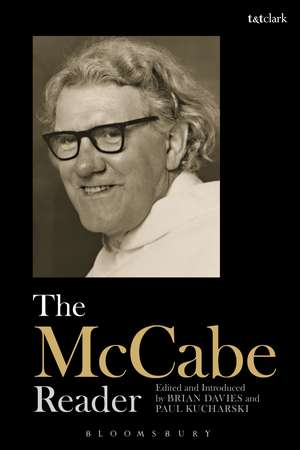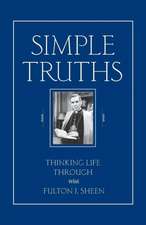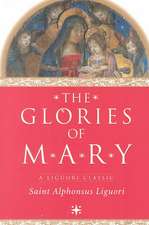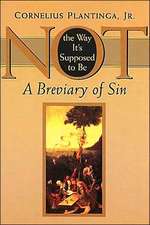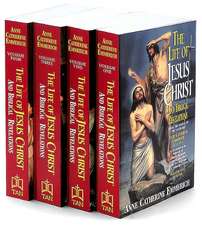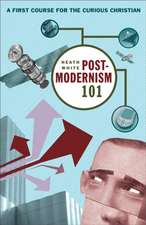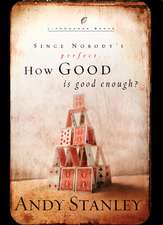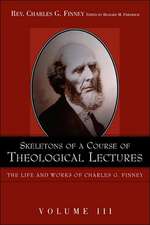The McCabe Reader
Editat de Fr Brian Davies, Paul Kucharskien Limba Engleză Hardback – 21 sep 2016
| Toate formatele și edițiile | Preț | Express |
|---|---|---|
| Paperback (1) | 182.47 lei 6-8 săpt. | |
| Bloomsbury Publishing – 21 sep 2016 | 182.47 lei 6-8 săpt. | |
| Hardback (1) | 718.76 lei 6-8 săpt. | |
| Bloomsbury Publishing – 21 sep 2016 | 718.76 lei 6-8 săpt. |
Preț: 718.76 lei
Preț vechi: 835.76 lei
-14% Nou
Puncte Express: 1078
Preț estimativ în valută:
137.60€ • 141.51$ • 114.15£
137.60€ • 141.51$ • 114.15£
Carte tipărită la comandă
Livrare economică 15 februarie-01 martie
Preluare comenzi: 021 569.72.76
Specificații
ISBN-13: 9780567668899
ISBN-10: 0567668894
Pagini: 384
Dimensiuni: 156 x 234 x 22 mm
Greutate: 0.71 kg
Editura: Bloomsbury Publishing
Colecția T&T Clark
Locul publicării:London, United Kingdom
ISBN-10: 0567668894
Pagini: 384
Dimensiuni: 156 x 234 x 22 mm
Greutate: 0.71 kg
Editura: Bloomsbury Publishing
Colecția T&T Clark
Locul publicării:London, United Kingdom
Caracteristici
Herbert McCabe has been highly influential in modern theology but to date there is no comparable selection of his works collated in one place: this volume fills a real gap
Notă biografică
Brian Davies is Distinguished Professor of Philosophy at Fordham University, USA.Paul Kucharski is Assistant Professor of Philosophy at Manhattanville College in New York, USA
Cuprins
Preface IntroductionPart I: Philosophy of God and Christian DoctrineGod and CreationThe Logic of MysticismThe Involvement of GodEvilAre Creeds Credible?Doubt is not UnbeliefHe was Crucified, Suffered Death, and was BuriedNobody Comes to the Father but by MePrayerPart II: Ethics and Moral TheologyThe Good LifePolitics and VirtueEthics as LanguageTeaching MoralsEssays on AquinasA Very Short Introduction to AquinasAquinas on God is GoodAquinas on the TrinityAquinas on the IncarnationAquinas on Good SenseSermonsFaithThe Genealogy of ChristJesus and SanctityA Sermon for EasterMotorways and GodRender to CaesarLife After DeathMcCabe Bibliography
Recenzii
As the years go by since his death in 2001, Herbert McCabe emerges as one of the twentieth century's finest Catholic thinkers: grounded in decades of reflection on the writings of Thomas Aquinas, his most characteristic themes are skilfully gathered in this excellent anthology.
Any new collection of essays by Herbert McCabe raises instant expectations of vivacious prose, razor-sharp wit, lucidity of style, high humour, and a host of arresting insights. Can anyone match him for turning a series of profound reflections on God, sin, Creation, evil, redemption and ethics into such delightful entertainment?
During his time at Blackfriars Herbert McCabe was an irreplaceable figure on the Oxford scene. No one else combined a Friar Tuck lifestyle and an explosive wit with an intellect that was a match for any don's. This well-chosen selection of texts will serve to introduce McCabe's thought to new readers while giving pleasure to long-standing afficionados. Few philosophers and theologians have been able to combine such density of thought with such clarity of expression.
Herbert McCabe was perhaps the most distinctive and challenging theologian in the anglophone Catholic traditions of the late twentieth century. Alive with energy and wit, his thought closely argued but delightfully lucid, his writings at once challenge lazy thinking and inspire theological creativity. This is a stunning collection.
Now readers of this generation will be able to imbibe Thomas from Herbert, as we all did: from the master among us to our master Thomas, to the Master whose word suffuses the prose. We discover how exciting and surprising that is, as we relish a wit and prose we wish we could deliver ourselves-without envy, in sheer delight. Astute editors waste no time plunging us into the metaphysics of divine action, where we quickly learn how speaking of God outstrips ordinary prose.
There are many more good things in The McCabe Reader which I must pass over, so I conclude that the set of sermons here published indicates that McCabe must have been a very exciting preacher, able to recall in a few simple words some of the truths about love, freedom, and mere humanity on which he has elaborated in [this book].
Any new collection of essays by Herbert McCabe raises instant expectations of vivacious prose, razor-sharp wit, lucidity of style, high humour, and a host of arresting insights. Can anyone match him for turning a series of profound reflections on God, sin, Creation, evil, redemption and ethics into such delightful entertainment?
During his time at Blackfriars Herbert McCabe was an irreplaceable figure on the Oxford scene. No one else combined a Friar Tuck lifestyle and an explosive wit with an intellect that was a match for any don's. This well-chosen selection of texts will serve to introduce McCabe's thought to new readers while giving pleasure to long-standing afficionados. Few philosophers and theologians have been able to combine such density of thought with such clarity of expression.
Herbert McCabe was perhaps the most distinctive and challenging theologian in the anglophone Catholic traditions of the late twentieth century. Alive with energy and wit, his thought closely argued but delightfully lucid, his writings at once challenge lazy thinking and inspire theological creativity. This is a stunning collection.
Now readers of this generation will be able to imbibe Thomas from Herbert, as we all did: from the master among us to our master Thomas, to the Master whose word suffuses the prose. We discover how exciting and surprising that is, as we relish a wit and prose we wish we could deliver ourselves-without envy, in sheer delight. Astute editors waste no time plunging us into the metaphysics of divine action, where we quickly learn how speaking of God outstrips ordinary prose.
There are many more good things in The McCabe Reader which I must pass over, so I conclude that the set of sermons here published indicates that McCabe must have been a very exciting preacher, able to recall in a few simple words some of the truths about love, freedom, and mere humanity on which he has elaborated in [this book].
